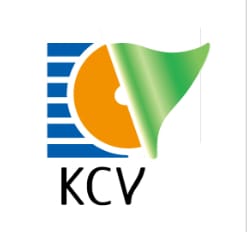IEA/AIE 2025
IEA/AIE 2025
Kitakyushu, Japan
| July 1-4, 2025
Accepted Papers
- A Novel Score Function for Ranking Interval-Valued Intuitionistic Fuzzy Values
- Hierarchical Multi-Agent Reinforcement Learning with Epistemic Priors for Scalable Communicationless Coordination
- BF-YOLOv7: Enhancing Helmet Rule Violation Detection
- Apply TF-IDF and LDA to Explore Topics and Related Trends in Electric Vehicle Reviews
- Using Meta-Learning to Predict Work-in-Progress: An Approach for Small Datasets
- Identifying frailty levels in older people through the use of smartphone applications
- Identifying Fake Reviews and Their Implications Using BERT and LDA: A Case Study of Online Shopping Website Reviews
- WeldViT: A Lightweight Network for Online Identification of Multi-Label Welding Defects
- Bayesian Optimization for Fine-Tuning an AI Solver: Application to Preventive Maintenance Scheduling Problems
- Ranking Lifelogs for Memory Recall Support
- Improving University Quality from Student Feedback with Sentiment Analysis
- Distribution Variance for Surrogate Weights in Multi-Criteria Decision Analysis
- Domain Generalization through Domain-Expert Risk Assessment
- Impact of Replay Ratios on Performance and Efficiency in Continual Learning for Skeleton-based Action Recognition
- Uncertainty-based Instance-Dependent Noisy Label Datasets Generation
- Guided by Uncertainty: Semi-supervised Domain Adaptation with Curriculum and Contrastive Learning
- DynaMIX: Sample-Efficient Multi Agent Reinforcement Learning with Multi-Step Temporal Forward Dynamics Modeling
- A Self-Adaptive Multi-Modal Cyber Threat Intelligence Framework for Securing Industrial Communication Networks
- An Enhanced Preference-Based Reinforcement Learning Framework for Autonomous System
- A Novel Task Assignment Strategy for Multi-Robot System
- Bridging the Trust Gap: Leveraging Explainable AI for Personalized E-Commerce Recommendations
- Robotic Path Optimization for Efficient Robot Movement in Harsh Environments
- A Hybrid Approach for Path Planning in Harsh Environments Combining WOA and DMSGPSO
- A Smartphone-based Early Detection and Remote Consultation System for Stroke and Dementia
- Interpretable Machine Learning for Predicting and Explaining Code Submission Outcomes in an Online Judge system
- Linking Data Meaningfully: Identifying Meaningful Keys and Foreign Keys from Data
- Reinforcement Learning based Iterated Greedy for Parallel Machine Scheduling with Weighted Earliness Tardiness
- Enhanced Optimization Space Learning: Towards Real-Time Compiler Optimization
- Evaluating Large Language Models for the Automated Generation of Software Requirements
- CAMI: A missing value imputation method based on causal discovery and self-attention
- A clustering method based on hesitant difference granularity
- Extending YOLO for Feature-Based Classification Through Numerical-to-Image Transformation
- VMD-IMF Enhanced Hyper Graph Attention Module Based Reinforcement Learning For Portfolio Optimization
- A Lightweight and Efficient Punctuation and Word Casing Prediction Model for On-Device Streaming ASR
- Exploring the Efficacy of Large Language Models in Predicting Chemical Toxicity
- MDR: An Ontology Vocabulary and Registry Service for Dataset Catalogs
- An Efficient and Cost-Effective Medicine Reminder and Dispenser System
- Automating OntoClean Ontology Verification
- Automating OntoClean - Subsumption Hierarchy Construction
- RANsomCheck: A CNN-Transformer Model for Malware Detection Based on API Call Sequences
- Splitting and Parallel Training of Dense Layer in Dueling DQN
- Possibilistic Reasoning with Fuzzy Formal Contexts: An Extended Abstract
- SYNCAD: Synchronised Yields from Narrative Cross Modal Audio and Data
- Implementation of a One-Time Random Number Generation Mechanism for Zero-Trust Networks with IoT Transmission Verification
- A-REACT: Adaptive Resampling and Active Classification for Thresholded Anomalies
- DistResampleR-Lite: Light Distributed Resampler for Imbalanced Regression Problems
- Multi-Class Semantic Segmentation of Photovoltaic Module Defects and Features: Towards Industrial Robotic Applications
- Towards Predicting Complex Carpooling Trajectories with Context-Augmented BERT-LLM in Chaotic Environments
- Comparative Analysis of Large Language Models and Machine Learning Approaches for the Detection of Dengue Fever Information from ProMED-mail Platform
- Model-based diagnosis for building systems - results of an initial feasibility study
- Leveraging Real-World Data to Predict Macrovascular Complications in Type 2 Diabetes: A Comparative Machine Learning Study
- Adaptive DRL-Based Traffic Signal Control with an Infused LSTM Prediction Model
- Teaching Practices and Effectiveness Assessment of AI Courses Assisted by Large Language Models
- Fusion in Multimodal Sentiment Analysis: A Review of Approaches and Challenges
- Evaluation of Efficient AI for the Edge: Insights from Deep Neural Networks Model Compression Techniques Applied to Occupancy Detection
- A Fast R1CS Normalization Method Based on Parameter Vectors
- LSTM-based Proactive Scheduling of Stream Applications in Edge/Cloud Environments
- MultiGAU: Real Time Sign Language Generation using Multimodal Gated Attention
- Establishing the service development strategies for digital music subscription services based on the DAA-NRM approach
- T-test-based Feature Selection on DNA Microarrays Gene Expression Data for Leukemia Classification
- Multi-Objective Energy-Efficient Scheduling in Two Stages Hybrid Flowshop under Consideration of No-wait
- Multimodal Sarcasm Detection On Vietnamese Social Media
- Fast HSIC-based tests for random processes
- Development and Performance Evaluation of a Wiring Impedance Detector for Electrical Sockets in Buildings
- Effective Virtual Force Estimation with Semi-Parametric Joint Friction Compensation for Robot Manipulators
- Enhancing Traffic Accident Detection with YOLOv5 in Smart City Road Monitoring
- Uncertainty Quantification Of Multimodal Models
- Fine-grained WEEE Product Retrieval Using Hybrid Search and Re-ranking
- Automated Issue Hierarchy Generation for Improved Automated Negotiation Outcomes
- Beyond Air Pollution Prediction: A Step to Pollution Pattern Discovery With A Novel Binary Neuro-symbolic AI Framework
- Transformer-Based UWB Positioning: Learning to Correct Ranging Errors for Autonomous Agents
- Lost in the Noise: Evading and Detecting Backdoors in Conditional Diffusion Models
- A Hybrid Knowledge-Based and Machine Learning Approach for Financial Health Prediction in Small and Medium-sized Enterprises
- MediTHIM: Temporal Hierarchical Imputation Methods for Medical Time Series
- Optimizing Feature Selection Binary Peacock Algorithm with improved movement strategy
- SkinPalNet: An Advanced Ensemble Model for Skin Cancer Diagnosis with Computer Vision Approach
- Collision Detection and Avoidance among SWARM Robots using Convolutional neural network (CNN) in Harsh Environment
- A Comprehensive Survey of Cryptography Key Management in Decentralized Identity Ecosystem
- Classification of Approval Desires and Analysis of Emotional and Linguistic Features in SNS Posts Using Generative AI
- A Strategy for Implementing Garbage Detection in Ontology Completion using Description Logics
- LLM-based MaSE, A Software Development Framework for Developing Multi-Agent Systems
- A reinforcement learning based framework to the facility layout problem
- Enhancing Ransomware Detection Using Deep Learning Models
- Enhancing Minimarket Customer Experience through YOLOv8-Powered Checkout Systems
- IoT system based on deep learning for the identification and feedback of work postures when using a computer
- CAGN-GAT Fusion: A Hybrid Contrastive Attentive Graph Neural Network for Network Intrusion Detection
- Brain Tumor MRI Interpretation: Towards a Benchmark for Medical Visual Question Answering
- A Dual-Agent Framework for Condition-Based Maintenance of Production Systems
- MST-SGAN-KGQA: A Novel Approach for Industrial Knowledge Graph Quality Assessment
- Adversarial Learning Based Error Detection for Industrial Knowledge Graphs












